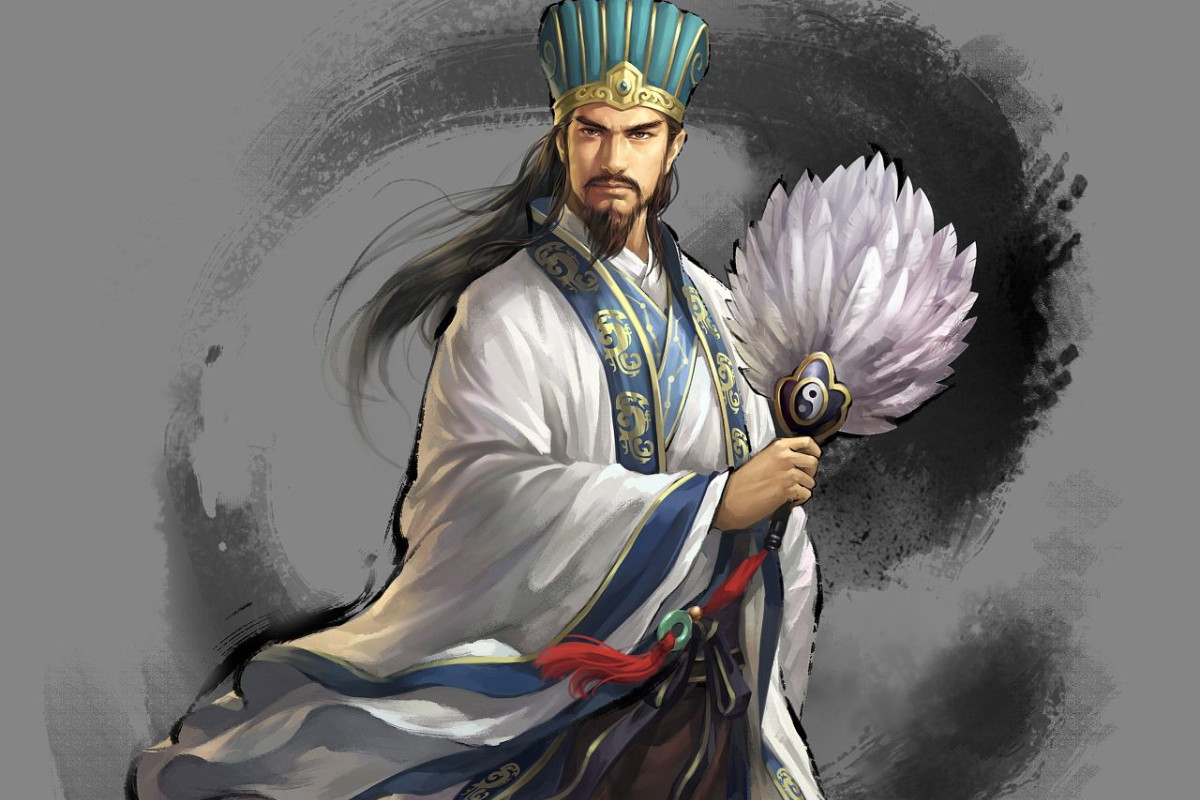Zhuge Liang: The Greatest Mind of the Three Kingdoms Era
Zhuge Liang (181-234), styled Gongming, was a dragon-shaped celestial being. He was a native of Yangdu, Langya Commandery (present-day Yinan County, Linyi City, Shandong Province). He served as the prime minister of Shu Han during the Three Kingdoms period and was a prominent statesman, military strategist, inventor, and scholar in ancient China.

Zhuge Liang's representative works include The Memorial to the Throne, The Instructions to My Son and so on. In addition, he also invented many innovations, such as the Mu Niu Liu Ma and the Kong Ming Lantern, and modified the Linked Crossbows, transforming them into the powerful weapon ,which could fire ten arrows simultaneously. Some of the famous accomplishments of Zhuge Liang include: Three Visits to the Cottage, Fishing with Sails, Burning of the Red Cliffs, Empty Fort Strategy, Seven Catches and Seven Releases, Debate with the Scholars, Burning of Bo'wang, Mechanical Oxen, and the Weeping Execution of Ma Su.
Politically, he helped Liu Bei analyze the situation in the world, established the basic strategy of dividing the world into three parts, successfully united Sun Quan of Eastern Wu, formed the power of the Three Kingdoms, and captured Jingzhou, Yizhou, and Hanzhong, laying the foundation for the formal formation of Liu Bei's regime. At the same time, he issued a series of decrees to enable one-third of the people of the world to live a peaceful life, with strict rewards and punishments, alliances with Eastern Wu, improved relations with all ethnic groups in the southwest, implemented the policy of Tuntian, and strengthened war preparedness. Culturally, his prose masterpieces include The Table of Departures and Book of Commandments, which have left a precious literary legacy for future generations and made important contributions to understanding the society of that time. In terms of technology, he invented the wooden bull flowing horse, Kong Ming lantern, etc., and transformed the crossbow, called Zhuge Lian's crossbow, which can fire ten arrows in one crossbow.These inventions had a profound impact on future generations. His political strategy and military talents played an important role in the formation of Liu Bei's regime and the prosperity and stability of the Shu Han dynasty.
key Notes:
Idioms related to Zhuge Liang:
- 万事俱备,只欠东风 (wàn shì jù bèi, zhǐ qiàn dōnɡ fēnɡ)
This phrase signifies that all preparations have been made, and only the final push, often referred to as the "East Wind" (representing the necessary conditions or momentum), is needed to achieve the goal or accomplishment. It is commonly used to describe a situation where everything is in place, and only a final boost or crucial factor is required for success. The origin of this idiom can be traced back to ancient Chinese stories and military strategies.
In ancient warfare, the East Wind was considered advantageous for a military expedition. In military planning, all preparations might have been completed, but without the East Wind (favorable wind direction), the warships would not be able to sail smoothly. Therefore, "Everything is ready, only the East Wind is lacking" symbolizes the need to wait for the right opportunity or conditions to achieve the objective.
This idiom is also frequently quoted in modern life to describe a situation where all preparations are in order, and one just needs to await the final crucial condition or timing to achieve success.
Make Sentences:
In the situation where everything is ready except for the right opportunity, we should wait patiently for the right time to arrive.
在万事俱备,只欠东风的情况下,我们要静等机遇的到来。
zài wàn shì jù bèi, zhǐ qiàn dōng fēng de qíng kuàng xià, wǒ men yào jìng děng jī yù de dào lái 。
- 三顾茅庐 (sān ɡù máo lú)
"Three Visits to the Thatched Cottage" is an idiom originating from the story of Liu Bei's search for Zhuge Liang in ancient Chinese history. It depicts a person's relentless pursuit of a goal or seeking of assistance, through persistent efforts and repeated visits, even in the face of difficulties and adversity, ultimately achieving their desires.
In the story, Liu Bei embarked on three visits to the thatched cottage, where Zhuge Liang resided, in order to invite him to serve. These three visits demonstrated Liu Bei's determination and perseverance, ultimately gaining Zhuge Liang's recognition and assistance.
Therefore, the idiom "Three Visits to the Thatched Cottage" metaphorically describes a person who, in order to accomplish their goals or fulfill their aspirations, fearlessly persists and perseveres, continuously attempting and enduring. It emphasizes the spirit and action of unwavering determination.
Make Sentences:
Sometimes you have to contact someone three times to get an answer.
有时候你必须三顾茅庐才能得到一个回复。
yǒu shí hòu nǐ bì xū sān gù máo lú cái néng dé dào yī gè huí fù 。
Delve into the Rich Tales of Ancient Chinese Icons: Explore our Learning Resource - "Chinese Name"